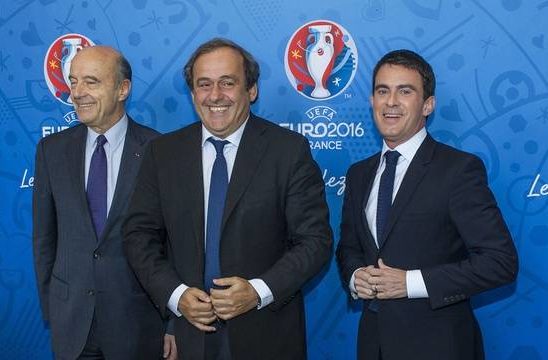
The crazy week of Manuel Valls
In media crisis cases, the geographical distance is often a mitigating factor. If Manuel Valls’ visit to Berlin was at the origin of the controversy heis facing this week, it is likely that upon his return from La Réunion, other issues will have taken center stage. Especially since, before leaving, he hadthe wisdom of “letting go” a little ground compared to the very stiff answers initially made to those who criticized him (and there were plenty). Experience shows that when a Prime Minister wants to stay too upright in his boots, he does not necessarily succeed.
But the past week could become a case study for communicationstudents.
Primarily, a double error of communication from the Prime minister.
First of all, not mentioning his journey to Berlin on his official schedule could only create the idea of a private travel and raise the doubt when,in reaction to the first questioning,the thesis of the working meeting with the President of UEFA was moved forward. If he haddone otherwise, nothing of which followed would have happened.
Secondly, since he knew he would spend the Saturday evening in Berlin, why let his team repeat over and over again that he would stay for the entire congress in Poitiers to be with the militants and talk to them? The gap between the theoretical speech and the actual behavior only reinforced doubts and maintained controversy, including among traditional supporters of the executive.
From there, the usual scenario of a mismanaged communicationcrisis unfolded. As always, in three sequences.
First, the denial around the topic of a working visit taken up by all supporters of the Prime Minister, including the President of the Republic. With a very assertive and confident Prime Minister.
The explanation did nothing but feed the controversy before Valls was subtly contradicted by Michel Platini in a statement read word for word during a press conference and balanced enough to suggest that he supported Prime Minister while belying his words.
Then came the second sequence, which consists in trying to divert the debate towards others. As reminding multiple times Nicolas Sarkozy’s trip to Le Havre was not enough, then came the argument that criticizing the presence of both sons of the Prime Minister was playing into the hands of the National Front. It did not work either.
It was thus necessary to skipwithout further delay to the third phase: confessing an “error of communication” according to the Prime Minister, and repenting, by paying off the two sons’ travel.
One can certainly claim that their presence cost nothing, argument in fact abundantly used until then by the Prime Minister’s defenders. Onecannot fail to underline the paradox consisting in paying off what did not create expense, in order to try to hide what had a real cost. But a crisis communication is not affair of rationality. What is important in this case is the change of posture shown by the half-confession and the beginning of repentance with the payment of the children’s transportation.
The crisis is going to calm down, but it may still leave long-lasting stains on the Prime Minister’s image. It would probably nothave been the case if Manuel Valls had claimed early the “leisure” character of his travel and announced his decision to pay off part of its cost, according to the rulesin force for Prime Ministers’ private journeys.
Nobody can blame the latter for wanting to protect a minimum of personal and family life. And many people in France who would have understood that Manuel Valls would rather spend his Saturday evening admiring the exploits of the Barcelona’s dream team rather than having dinner with JM Cambadélis. Still, it would have been necessary to state it with full transparency.
